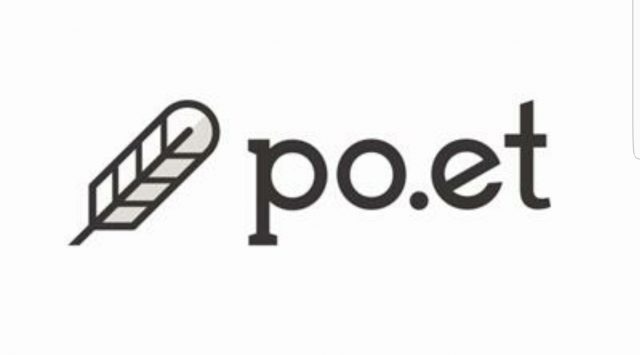
Why Kodak Is Losing Confidence: KodakCoin Versus Po.et (POE)

Po.et (POE) – After the once iconic imaging company Eastman Kodak (NYSE: KODK) announced in January that it would launch KodakCoin, a cryptocurrency for digital rights management, its struggling stock exploded on blockchain hype. Kodak stock skyrocketed 272% from $3.10 on January 8 to a high of $11.55 on January 22. But in the midst of a cryptocurrency bear market, Kodak stock has also slipped, down 44%. Now Kodak is having second thoughts on KodakCoin. It postponed the scheduled January 31 ICO, with over 40,000 potential investors. Both legal problems and cryptocurrency competition seem to be reasons for Kodak’s crisis of confidence.
Kodak’s plan, in theory, has two prongs. First, it will uphold a licensing deal for a crypto mining computer called the Kodak KashMiner, allowing users to independently mine. Second, Kodak struck a deal with WENN Digital, a British photo agency affiliate that operates in photo licensing. The terms are that Kodak will receive a minority stake in WENN, 3 percent of all issued KodakCoins, and royalties on future revenue. The KodakCoin ICO will allow artists and photographers to upload their data to the new KodakOne platform, create a blockchain-based based license for each file, and utilize deep searching software to find copyright violations online. The main assumption is that creators will want to be paid by clients in KodakCoins instead of fiat.
In its announcement of the ICO delay, Kodak cited US legal concerns. Because the Securities Act of 1933 restricts public investment in private equity and similar assets to high net worth individuals, Kodak will need to do due diligence and verify that its potential investors are accredited investors. Under US law, accredited investors are individuals whose net worth exceeds $1 million or whose incomes have exceeded $200,000 for the two most recent years. Doing financial research and verification on 40,000 potential investors will likely be a logistical nightmare and cost time and capital.
Another consideration for Kodak and potential investors is that in the crypto space there already exists a digital media assets token that is basically superior to the idea of KodakCoin. Po.et (POE), also know as Proof of Existence, is a shared, universal ledger designed to track ownership and attribution of global digital creative assets. It does so by creating an open platform on the secure Bitcoin (BTC) blockchain. Po.et uses cryptographic fingerprints to allow users to own their content, create and issue licenses, find new content, and verify authenticity. It offers valuable advantages to publishers, journalists, and content creators. Conceived by a team of experienced developers, Po.et’s initial investors include people in crypto and venture capital. In August 2017 the POE token ICO on the Ethereum (ETH) platform raised $10,000,000.
The question is what advantages KodakCoin could offer over POE. The answer seems to be none. POE is more accessible and easier to use. Anyone who can access crypto can access POE. Buyers and sellers do not need to be accredited investors. POE is more liquid by far, with $5 million in volume traded daily on the Binance, OKEx, and Kucoin exchanges. In contrast, KodakCoin investors will need to hold for a while before an exchange becomes available. Finally, Po.et does digital rights management better. Whereas KodakCoin is limited to visual art and photography, Po.et potentially includes more creative assets, like papers, audio, and video.
So Kodak losing confidence is a function of legal hurdles and competition. Without extra incentives, rational creators will not use the illiquid KodakCoin instead of open-source Po.et. Yet Kodak chief executive Jeff Clarke insists that KodakCoin is based on a genuine interest in blockchain. Even if Kodak eventually succeeds in launching KodakCoin, it seems more a distressed company’s desperate effort to stay relevant.
The author does not hold any positions in POE.